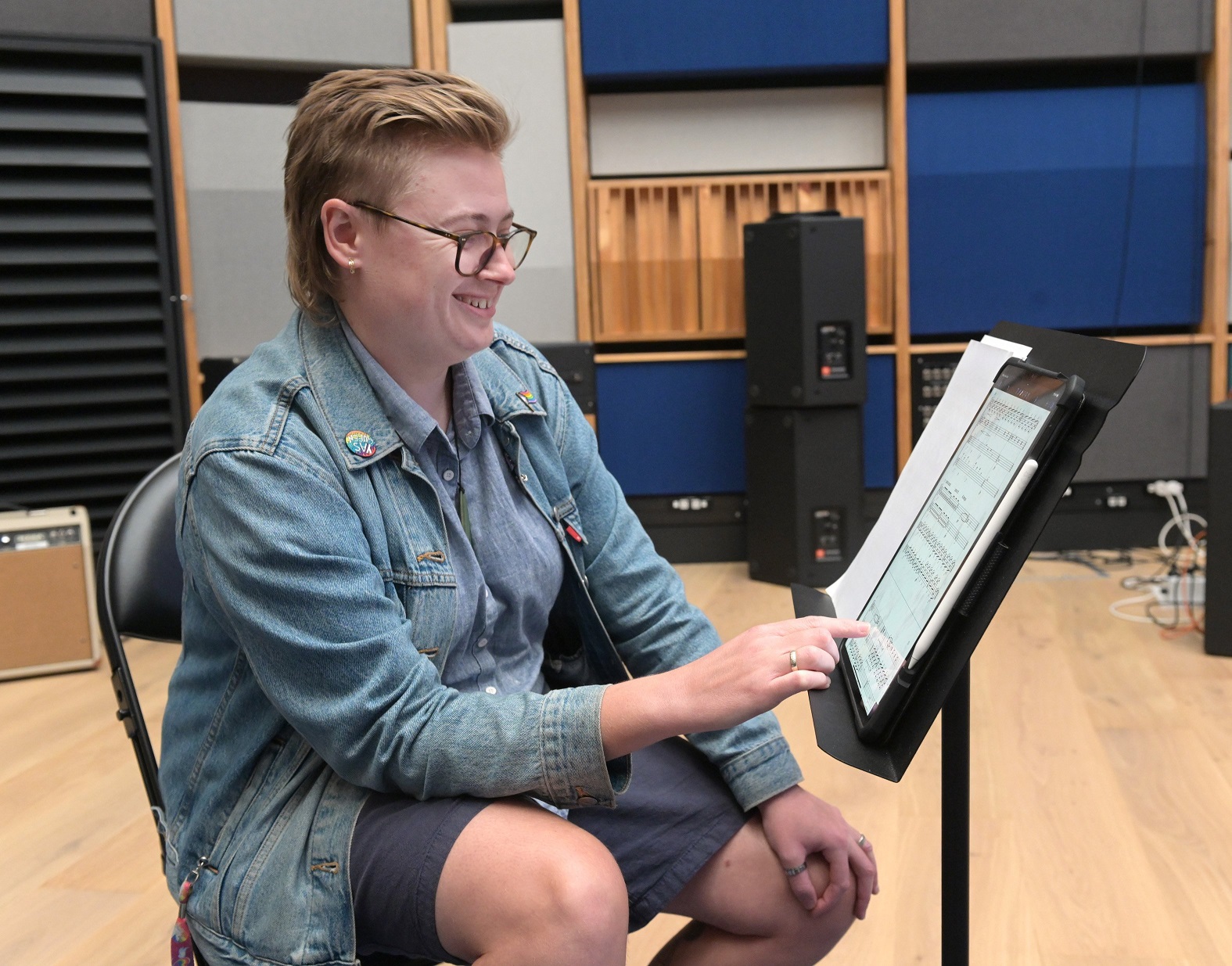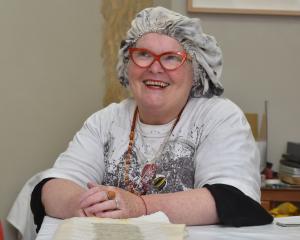

"This is not a healthy, normal way to live. This is quite serious. I felt nothing and, if I felt anything, I felt awful."
It was 2019, she had moved from Invercargill to Auckland for an "exciting new job, in an exciting new city".
"I was telling myself all the usual, it was a fresh start, a new year, a new-me type thing."
She was excited about commuting to work on a train, feeling smug she was not contributing to the hole in the ozone layer.
However, that excitement turned to fear as she fell further into depression.
"As I got sicker and sicker the journey became a point of danger as I realised I was getting more and more aware of express trains."
But her realisation led her to return to Dunedin.
"I was completely incapacitated. We had got a puppy so I’d walk the dog, but at the start all I could do was sit there, pat the dog and try to figure out what was happening and how I was going to get through this."
With a "s... tonne" of therapy, Parkins-Craig began to feel the depression lifting and she continued to get better.
"I’ve made a lot of significant changes in my life."
She now lectures in song writing and composition at the University of Otago’s School of Performing Arts, where she also studied for her PhD in musical arts.
"I was really lucky, I had the best possible outcome. To have gone through something like that and to be really healthy, in a job I love, making music again."
She set herself a task of writing a piece of music about her experience, selecting to write for a string quartet.
"It started as a bit of a personal project to see if I could do it."
Parkins-Craig is a songwriter, performer and producer, known for her work as a drummer, bassist and vocalist, in styles including alt-rock, disco, pop and musical theatre.
As she worked on the piece, she started to think that maybe it was something others might like to listen to, but realised she wanted other voices to be heard on the topic as well.
Soon she had a group of people — poets, a dancer, choreographer and sound designer — all keen to collaborate and add to the performance.
"It kept growing with people who have different specialties to me and them saying ‘what if we did this?’. It’s very exciting. The core piece is so, so personal. To know the performance is going to be so many different people adding their own take on it — it adds an exciting and unexpected twist to the performance."
But she admits at first sharing the project with others was nerve-racking, as like many she held herself to a higher standard than she would someone else in the same situation, even though her colleagues were all really supportive.
"I feel better about it all the time. I was, I realised, initially ashamed to talk about it, now I’ve got no problems doing it.
"It’s still a little bit scary, but it is important, to say this is reality for a lot of people.
"Hopefully it is helpful to someone. It is such an isolating illness as well. If I’d heard something like this when I was unwell I’d have found it comforting."
She titled the new work TwentyNineteen, New music for old wounds, and it is broken into four movements, each representing a specific event or memory from that year.
The first movement, "to the city" is about her move to Auckland for the new job, the second is about her fear of trains and her realisation that she needed help, the third, "just breathing" is about her return to Dunedin and the road to recovery.
"I’m finally living with my wife again as through all this I’d been commuting a lot back and forth."
The fourth movement, "patience", she wrote a full year after the others as it was so difficult. It references the patience needed to work slowly through the issues and work towards wellness.
"You don’t wake up one morning and go ‘I’m healed’.
"It’s a very difficult thing to break down and think ‘how am I going to represent this musically?’.
"While I have a happy ending, I didn’t want the piece to go ‘tada’. "
The piece will be played live by violinists Tessa Petersen and Nathaniel Otley, cellist Heleen du Plessis and viola player Katrina Sharples with sound designer Mike Holland experimentally manipulating the sound at the same time. Marty Roberts is doing the lighting design.

"It will all feed into each other and weave into a coherent performance. I usually do a lot of solo projects so it is cool to invite others in, tell them the premise and say ‘what are you going to add to that?’."
Parkins-Craig will perform new music she has written during the dance pieces.
"It’s really cool to have formed this mini-community."
Writing TwentyNineteen came at a good time for her as during Covid there were no gigs to keep the songwriter busy, so like many of her composer colleagues, she pivoted, experimenting with writing different aspects of music.
As a drummer and bass player she is used to fixed-pitch instruments or drums, so had to approach writing for strings in a different way.
Composing on a computer also meant she had to keep in mind what is physically possible for the musicians to do in the timeframe she wanted, as computers can do anything.
"It was really interesting.
"I really enjoyed it."
It was also a twist to be communicating with music alone rather than through her beloved lyrics.
"Lyrics are my favourite part of songwriting. But I had to rethink things. I’m enjoying the ambiguity a little bit whereas I need to know exactly what I’m saying with words, but the awesome thing about music is it does communicate non-verbally."
She is finding teaching also inspires her own work and to keep trying new things.
Last year the Dunedin Symphony Orchestra debuted another new piece New Mountain, only Parkins-Craig was unable to be there as she had Covid.
"It was brutal. I’ve been playing on and off with them for years — it was so exciting."
While she used to think she did too many things, Parkins-Craig is trying to "reframe" that thinking to look on the positive side of always having another avenue to explore when another is not working.
"It’s lots of different ways to make music."
Looking back now, she is happy she did the piece, as she did not want to pretend her depression never happened.
"In the long run that is not particularly healthy. It’s not going to help me. The piece started off as a safe way to make sure I recognised what happened, a safe lens to look through and go ‘what the hell was all that?’."
TO SEE
TwentyNineteen, New music for old wounds, Te Korokoro o te Tūī, School of Performing Arts, March 18-19
Need help?
Need to talk? 1737, free 24/7 phone and text number
Healthline: 0800 611-116
Lifeline Aotearoa: 0800 543-354
Suicide Crisis Helpline: 0508 828-865 (0508 TAUTOKO)
General mental health inquiries: 0800 443-366
The Depression Helpline: 0800 111-757











